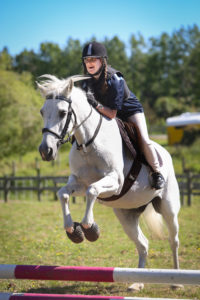
At just 20 years old, Sarah Dalton has a good selection of equestrian medals under her belt.
In the 2013 Special Olympics — her first games — she won a gold medal in the dressage event, silver in working trail and a bronze in equitation.
Now, four years on the Cockle Bay local is hoping to repeat that success at the 2017 Special Olympics National Summer Games to be held in Wellington next week.
Sarah has Charge syndrome — a recognisable genetic syndrome with a known pattern of features. It refers to a specific set of birth defects, medical problems and developmental issues that differ from child to child.
For Sarah, it’s meant a total loss of vision in her left eye and 30 per cent vision in her right. She also has a heart condition and chronic lung disease and has had more than 30 operations in her life so far.
She began horse riding at age 11 with Totara Park Riding for the Disabled where she stayed for the maximum 18 months before moving onto competing in the Special Olympics.
The National Summer Games is New Zealand’s largest sporting event for athletes with intellectual disabilities and is held every four years. More than 1300 athletes will compete in this year’s events, with an additional 500 volunteer coaches and management.
Despite the difficulties of Charge syndrome, Sarah has found ways to adapt to the sport.
She familiarises herself with the dressage course by walking the course in her grandparents’ driveway along with a variety of other strategies.
She uses the sentence ‘The Fat Black Mother Cat Had Eight Kittens” to memorise the order of the letters on the course and what she needs to do at each stop and also takes extra lessons at Bartley’s Riding Academy in Whitford where she trains.
The chance to compete at the Special Olympics is a fun challenge for Sarah, who says it’s cool “to do [a sport] with people with a similar ability to you and make friends”.
“For me, I find horse riding helps me a lot with a lot of my problems [like] my lungs [and] my heart.
“A lot of people just think horse riding is just getting on a horse but it’s actually a lot of work for your muscles, especially your legs and your muscles sitting up straight. It’s actually a hard sport,” says Sarah.
While nervous, Sarah’s excited about the chance to compete again in the Olympics and hopes to build on her success from the last time.
“Hopefully it wasn’t a fluke!” she laughs.










